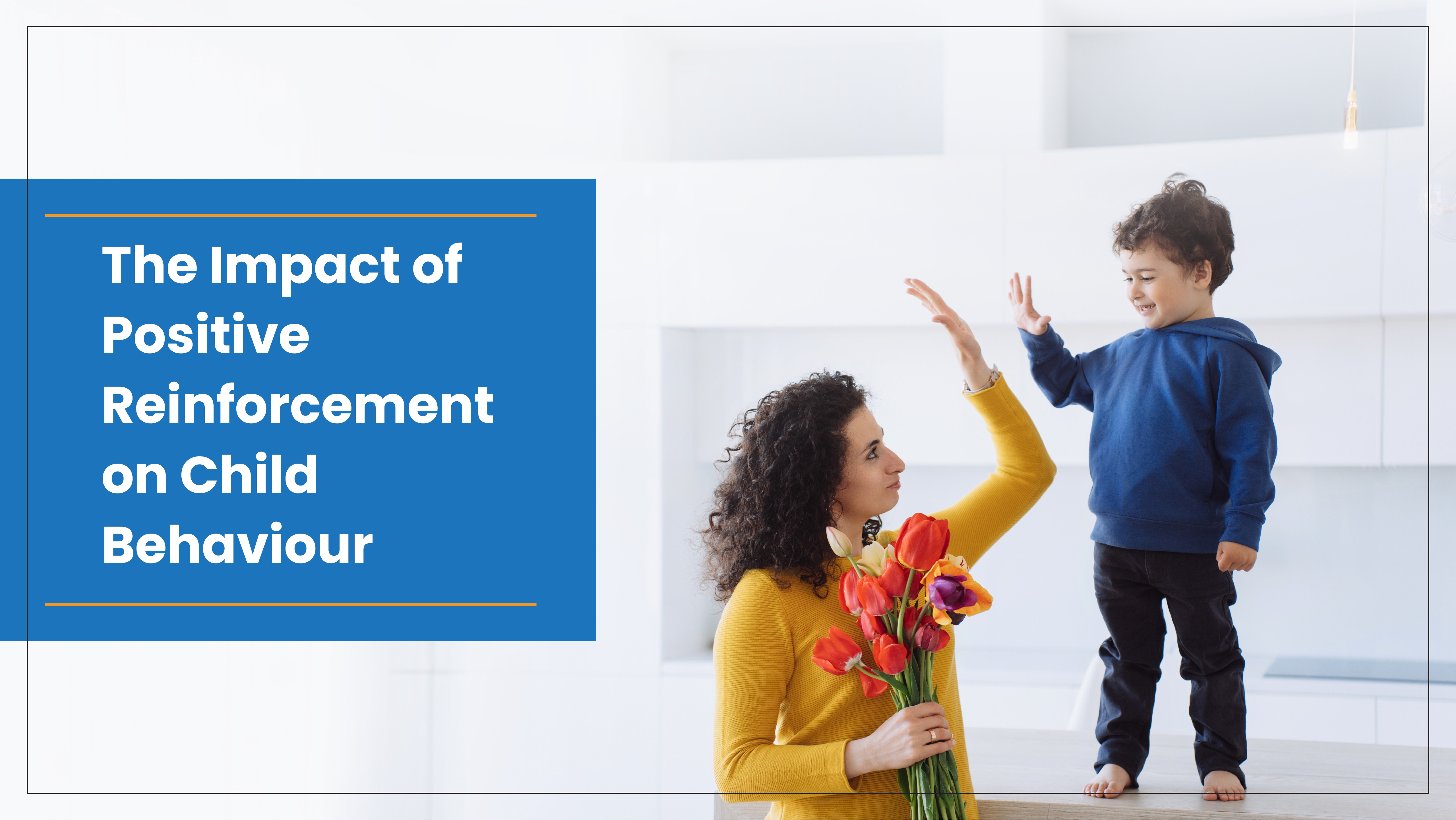Positive reinforcement is a powerful tool in shaping a child’s behaviour. It involves the addition of a rewarding stimulus following a desired behaviour, which makes it more likely that the behaviour will be repeated.
Understanding positive reinforcement and its impact on child behaviour is essential for parents, teachers, and caregivers who aim to foster positive development in children. This blog explores the benefits of positive reinforcement for children and why it is an effective strategy for encouraging good behaviour.
Understanding Positive Reinforcement
Positive reinforcement is the practice of rewarding a child immediately after they exhibit a desired behaviour. The reward can be anything that the child finds motivating, such as praise, a toy, extra playtime, or a small treat.
The goal is to make the child associate the desired behaviour with a positive outcome, thus increasing the likelihood that they will repeat the behaviour in the future.
Why Children Need Positive Reinforcement
Children need positive reinforcement because it helps them understand which behaviours are desirable and appreciated. It provides clear and immediate feedback, making it easier for them to learn and remember appropriate actions.
Here are a few reasons why positive reinforcement is so important for children:
1. Increases Self-Esteem: Regular positive reinforcement helps children feel valued and confident. When children receive praise and rewards for their efforts, they develop a sense of accomplishment and self-worth.
2. Encourages Good Behaviour: By consistently rewarding positive actions, children are more likely to repeat those behaviours. This can lead to the development of good habits and improved overall behaviour.
3. Strengthens Parent-Child Relationships: Positive reinforcement fosters a supportive and loving relationship between parents and children. It creates a positive environment where children feel safe and appreciated.
4. Promotes Learning and Development: Positive reinforcement encourages children to try new things and take on challenges. It supports cognitive and social development by motivating children to engage in constructive activities.
The Impact of Positive Reinforcement on Child Behaviour
The impact of positive reinforcement on child behaviour is profound. Here are some key ways in which positive reinforcement shapes and improves behaviour in children:
1. Improves Emotional Regulation: Regular positive reinforcement helps children learn to manage their emotions. By rewarding calm and composed behaviour, parents and teachers can help children develop better emotional control and resilience.
2. Shapes Problem-Solving Skills: Positive reinforcement can encourage children to think critically and solve problems. When children are rewarded for finding solutions to challenges, they learn to approach difficulties with a positive and proactive mindset.
3. Develops Independence: Positive reinforcement encourages children to take initiative and be responsible for their actions. When children understand that their efforts lead to positive outcomes, they are more likely to act independently and take responsibility for their behaviour.
4. Increases Motivation: Positive reinforcement increases a child’s motivation to behave well. When children know that good behaviour will result in a reward, they are more likely to act accordingly. This motivation can extend to various aspects of their lives, including academic performance and social interactions.
5. Reduces Negative Behaviour: Positive reinforcement can effectively reduce negative behaviours by encouraging children to focus on positive actions. When children receive attention and rewards for good behaviour, they are less likely to seek attention through negative behaviour.
Using positive reinforcement effectively requires consistency and understanding. Parents and teachers should be specific with praise, clearly identifying the positive behaviour being rewarded, and provide immediate reinforcement to help children connect their actions with the rewards. Varying the types of rewards, such as verbal praise, stickers, or extra playtime, keeps children motivated and engaged. Consistency in rewarding good behaviour reinforces positive outcomes, while balancing positive reinforcement with constructive feedback helps children learn from their mistakes in a supportive manner.
Positive reinforcement for children is essential for shaping and improving their behaviour. By understanding positive reinforcement and its benefits, parents can create a positive and encouraging environment that promotes good behaviour, emotional regulation, and personal growth.
The impact of positive reinforcement on child behaviour is significant, leading to increased motivation, reduced negative behaviour, and the development of valuable life skills. So, by consistently recognising and rewarding good behaviour, one can help children build a strong foundation for a successful and fulfilling life.


Stay connected, stay informed, and thrive with Narayana Educational Institutions!

Looks good article to guide parents how we can treat children..
Whatever things you people are going to share with us it’s very nice and effective but if only parents are going to put the efforts for rainforcement, what Will be the initiative of school to do the same.???? Don’t share it with parents only shared the same with teachers as well. As I observed you are Just doing theory part but their is no any practical implementation.
Main the Teacher first concern to support the every child behaviour and development of in society. The Teacher first guide in the child behaviour.when supported to successful in life. Don’t you to irrespective behaviour to child. This is the parent opinion and hopes.